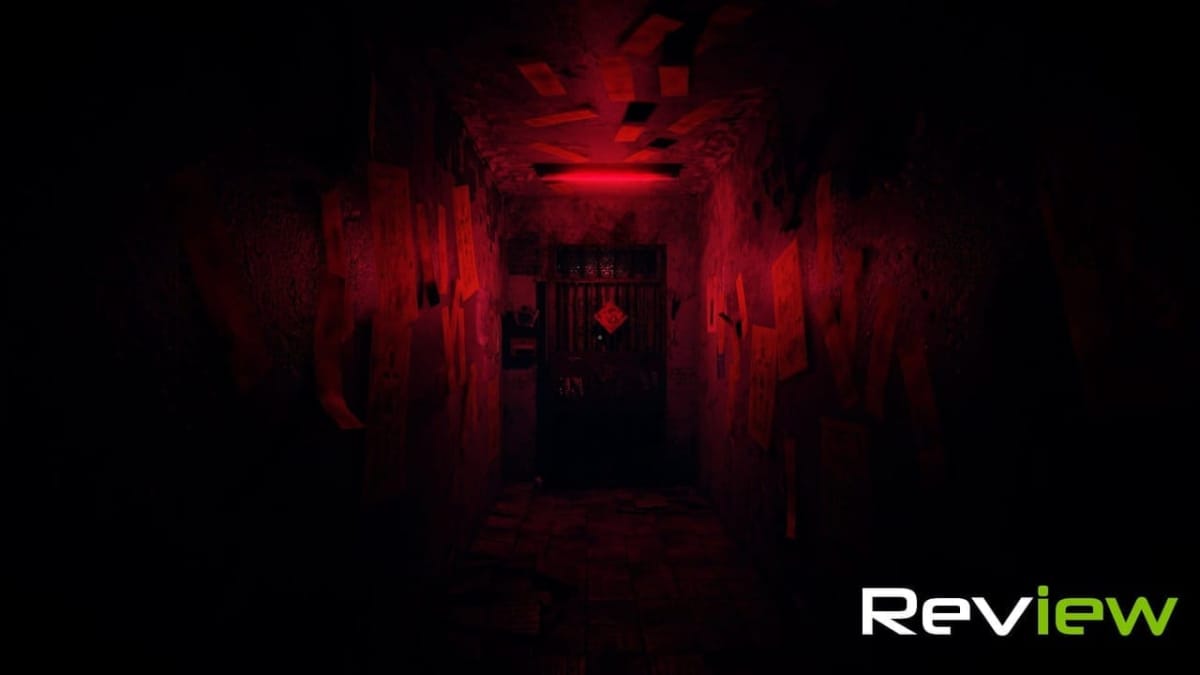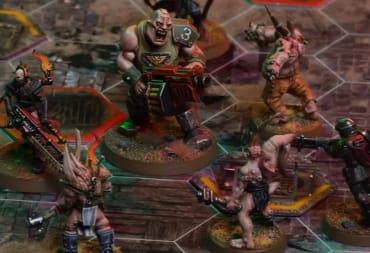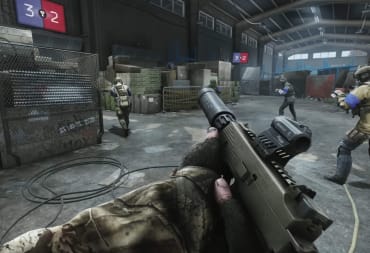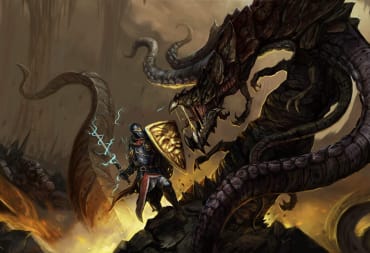I want to clear the political elephant in the room first. Devotion and developers Red Candle Games have been on the receiving end of intense hostility from mainland Chinese players due to a perceived slight against China President Xi Jinping. This has been covered in greater detail in an earlier report, but note that the game is currently unavailable at the time of writing due to the fallout from this controversy. Devotion, unlike Red Candle's previous game Detention (whose ratings are artificially deflated due to rub-off from Poohgate), is not in any way political. It is an intense and tragic story about a Taiwanese family, that does a remarkable job of drawing you into their personal lives as you sieve through memories twisted into horrific visions.
Set during the 80s, Devotion is about a Taiwanese family of three. You play in first-person as a happily married father of an 11-year-old daughter. It begins in a typical Taiwanese apartment home of the era. You sit in front of a fat cathode tube TV of old. A typical Chinese home-cooked family meal sits on the coffee table in front of you. The first impression that hits you is just how realistic the apartment is. Developers Red Candle Games have recreated the era with a heavy focus on authenticity that immediately draws you in. For players who have experienced a Chinese household during the 80s like me, there’s another that feeling that may hit you - nostalgia. This constant presence of nostalgia is a key part of Devotion's horror.
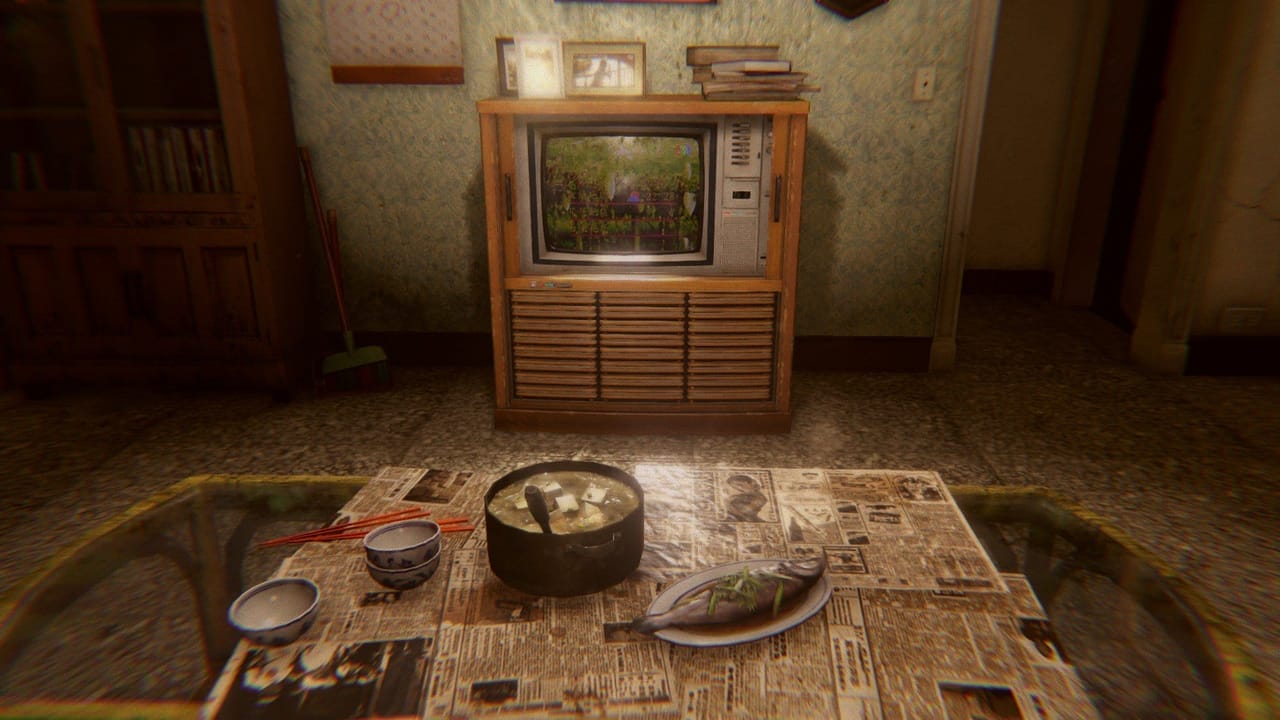
Devotion has the standard controls of movement with the WASD keys and using the mouse to look around and interact with the environment. You have both an Inventory screen, which displays the items that you can pick up and collected, and a Notes screen which contains the documents you pick up. The main 'puzzles' are very simple, usually just requiring you to 'Use' an item from your Inventory with an object in the world. Notes are mostly of personal journal entries or letters, which help to reveal more about the characters and the events that encompassed their lives. It is also where Red Candle Games provides information on the cultural context of the setting primarily for non-Chinese players, like a pamphlet on various Chinese customs.
You also gain a lighter early on that does not do much gameplay-wise. It provides an area of light around you as you walk through the environments. Even if there are other lights, I compulsively flick the lighter on whenever it turns off. Simply seeing a human hand with that flickering flame made me feel more at ease as I wandered through Devotion. It is a simple yet incredibly effective way to help players empathize with the father, even if the most they usually see of him is his left hand and the old watch on his wrist. The lighter felt like a talisman against the dark, even though I knew it really didn't do anything.
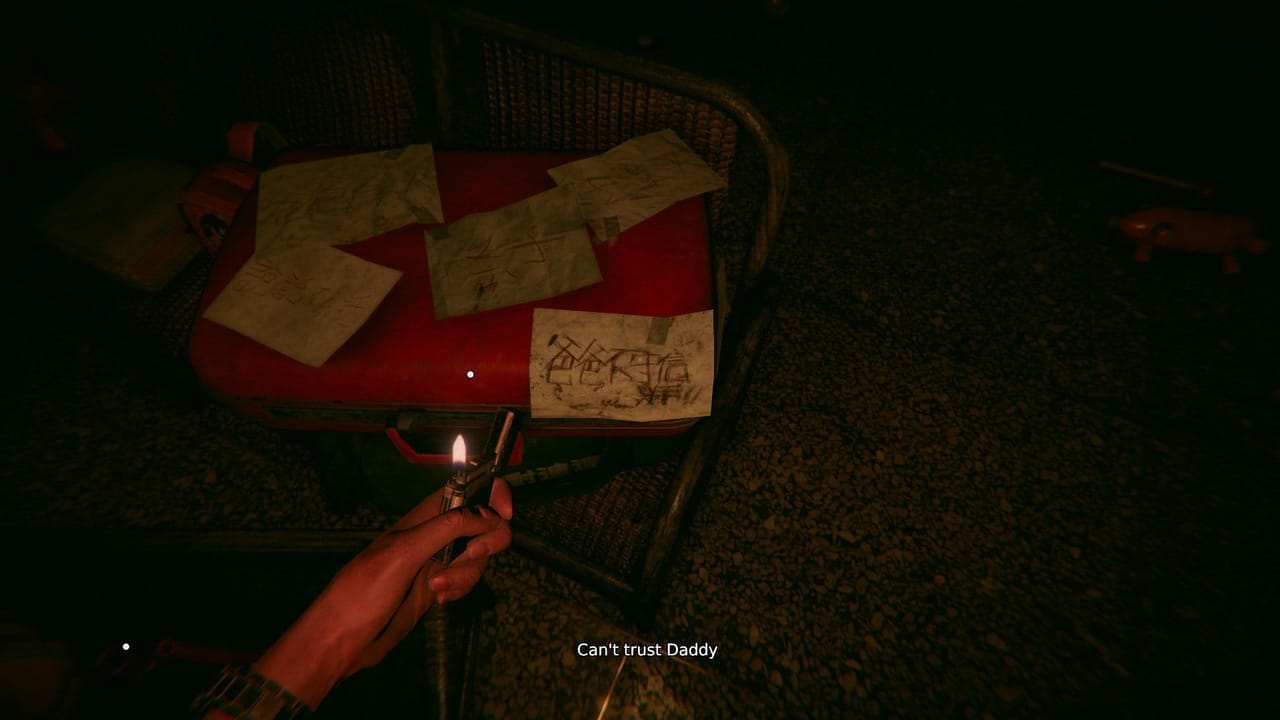
It is easy to compare Devotion to a number of 'walking simulator' horror games, such as Layers of Fear or P.T., and these comparisons are justified to an extent. In the first third of Devotion, you explore versions of your home over and over again. The first chapter, aptly named "Doorways", has you repeatedly exit and re-enter the doorway of your apartment. Each version has differences that range from the subtle to the far more extreme. The furniture layout in every room constantly rearranges itself. It gives a sense of instability as you wander through the home at different points in time. Perhaps it represents how we, as the father, remember his memories, a jumbled mind constantly hopping to different events in random order while trying to understand the bigger picture.
What should be the normal sounds of a home turn sinister often in Devotion. The random creaks and groans of a constantly unsettled home. The bubbling of the Arowana tank. An occasional harsh hiss or thump as typhoon winds crash into the windows. The muffled voices of people as if they're in another room. All these build an atmosphere that should be normal for the home, but of course, isn't. Devotion also recreates music and recordings of the era, with a cynical radio host and show that immediately reminds you of the sinister radio of P.T., as well as distorted recordings of the daughter's or wife's performances. It is as if you playing through a memory that has warped into a nightmare as it rots away.
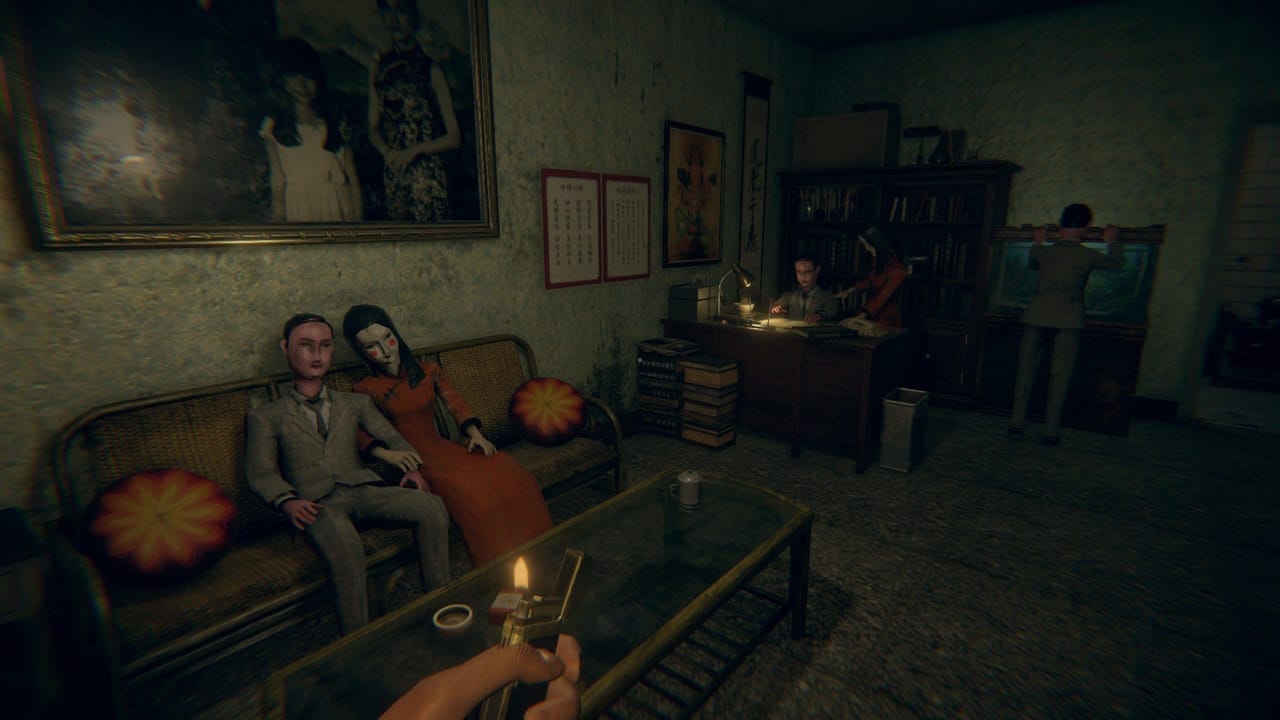
Similarities continue as Devotion does has its own version of P.T.'s Lisa. Here, she doesn't feature as a constant threat, though you may get jumped by her at unexpected moments. As you progress past the first third and enter the second chapter called "Nostalgia", everything opens up. The world of Devotion shows off unique storytelling methods that elevate it above the repetition of the Layers of Fear mold. It becomes clear that Devotion has the most in common with What Remains of Edith Finch.
Discovering this made me realize that there was no legitimate threat to the father's survival. Since the atmosphere of Devotion remains increasingly foreboding and eerie, my terror of facing the next scare persevered. However, these scary moments began to feel more like a necessity than a consequence since they're unavoidable as you progress. Instead, the horror comes from having to watch the past tragedy of the characters unfolding viscerally as I resolve each painful memory or event via inventively disturbing imagery.
Red Candle Games have created scenarios - ranging from the home suddenly populated by eerie mannequins to a child's conversation with her pet fish pantomimed by robotic dioramas to - that reveal the intimate history and experiences of the characters to the player through the wildly creative way they portray what those characters have gone through. The scenarios blend and flow together, stemming from the common 'hub' of the apartment itself, at a pace that always reveals something more throughout the four-hour experience and rarely slows down. Players become engrossed in these scenarios in no small part due to the way Devotion has made players empathize with its characters through the use of real-life actors to portray the characters at the heart of Devotion.
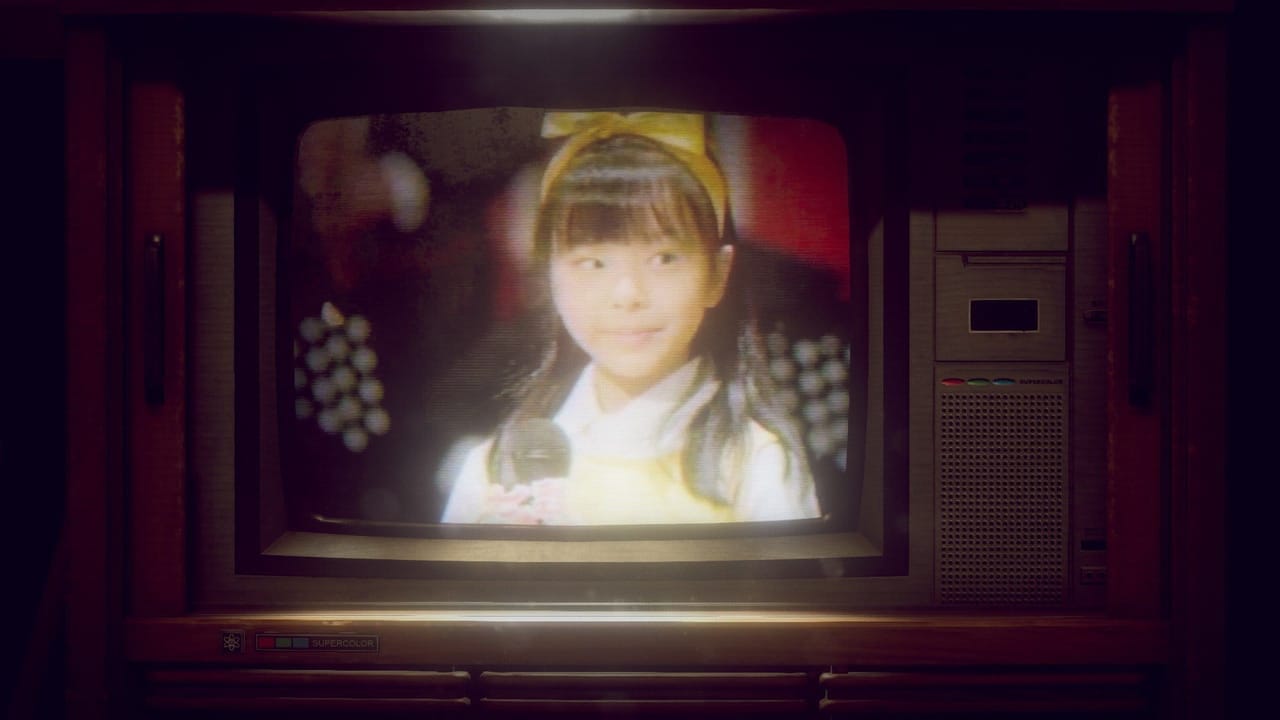
What really continues to draw a player through Devotion is the desire to understand each character's fate. One of the most compelling things that Red Candle does to endear the characters to the players is to attach real faces and voices to both the daughter Mei Xin and the wife Li Fang. For the wife, many custom posters and newspaper photos depict her in her prime. The developers even commissioned a Chinese love ballad for Li Fang to perform. Her presence and voice become familiar to the player, even though she rarely appears.
It is in the daughter Mei Xin's live-action footage that we see how real these characters can become. The players know how she looks, sounds, and acts as a real person. At several points, the player plays from her perspective, easily imagining the real-life girl. It makes it easier to feel what it's like in her shoes, making the emotions from these scenes resonate well.
Unfortunately, this use of real-life actors and models is a double-edged sword. Players can easily spot the differences between the digital versions of these characters and their real-life counterparts. The in-game models of the characters consistently felt off-model, whether in terms of facial features or even overall body shape. On one hand, this may be a deliberate way to display the father's faulty memories. However, I found it made it harder to associate the digital versions as 'them'. It often leads to certain scary or emotional moments landing softer than Red Candle Games probably intended. Ultimately, I found the lack of similarity more distracting than anything else.
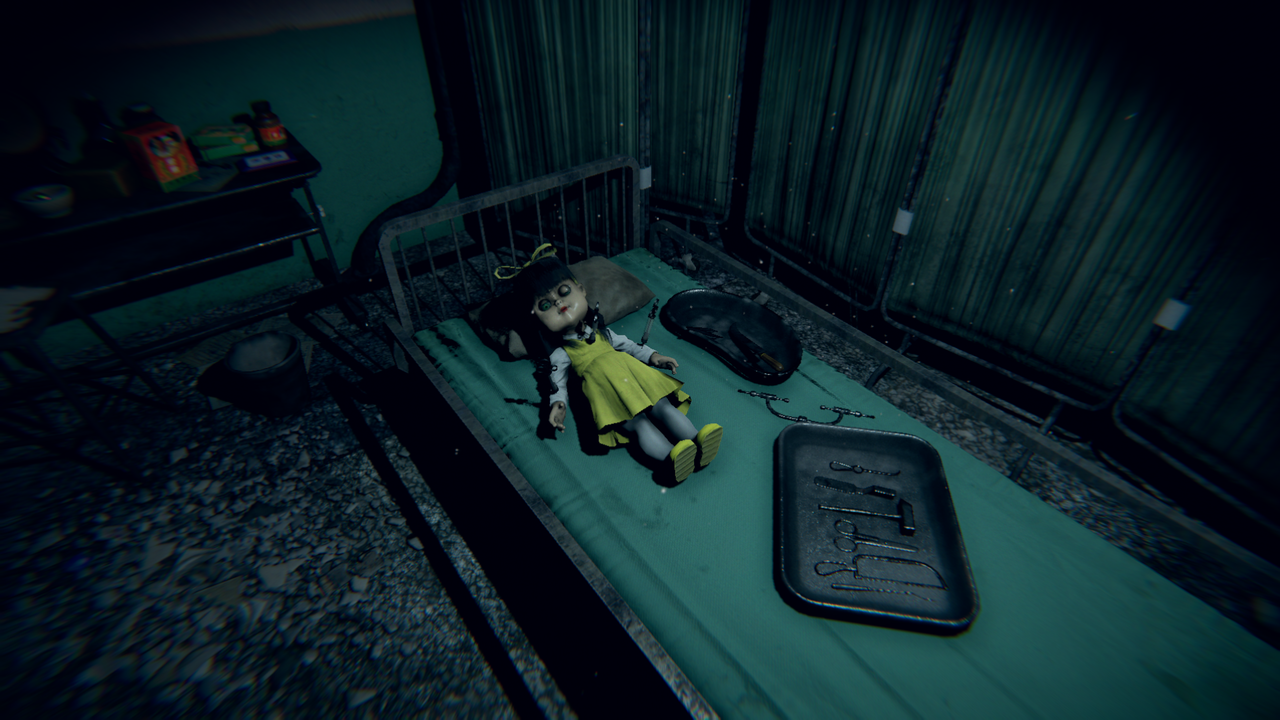
At the very beginning of the review, I mention that nostalgia is the cornerstone behind Devotion's horror. Red Candle Games painstakingly recreates an incredible amount of detail in its depiction of an 80s Taiwanese household explicitly to arouse feelings of nostalgia. Of course, to feel nostalgic about Devotion, one must have lived through a similar time period or culture. Of course, this isn't possible for players of different ages and backgrounds. For them, the feeling of nostalgia never really happens. Instead, it's possible they feel the whole situation is very alien and that is the primary source of fear.
Red Candle Games do try to provide background information on the various Chinese cultural traditions and customs. You pick up detailed Notes throughout the world as well as translated captions. Still, there are certain aspects of the design that non-Chinese players may miss. For example, the player comes across several life-sized dolls which are universally terrifying. However, the added cultural context is that these are effigies used for certain funeral rites in Chinese culture. Likewise, the color red is auspicious in Chinese culture. The way that Devotion uses the color red for its more hostile or sinister meanings is part of the subversion. At the same time, its use conveys the exact kind of dread they want from their global audience.
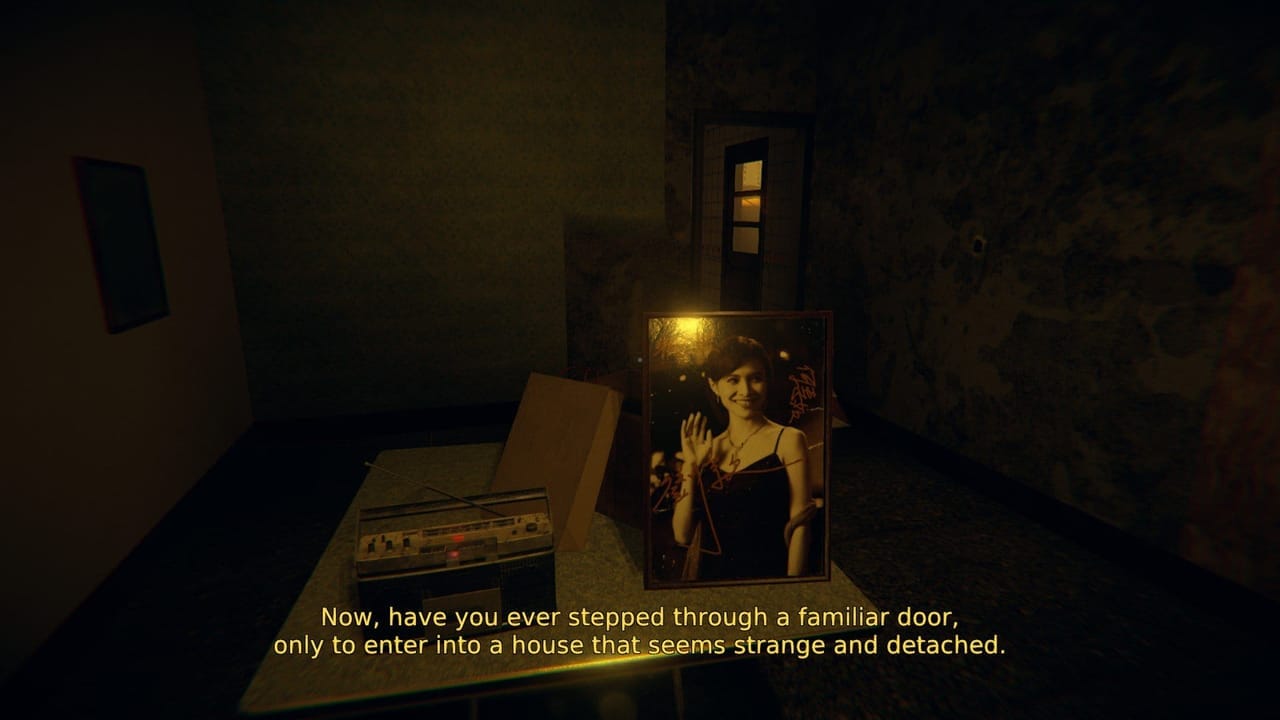
Despite Devotion's strong cultural identity, Red Candle Games still taps into the universal themes of regret, love, and misplaced faith. Due to Devotion's painstaking recreation of life in a Chinese household, it becomes especially personal if you're Chinese. You connect to someone when you know a character celebrated the same festivals. When they completed the same kind of homework or ate the same kind of sweets. I feel that many Chinese players across the world will find themselves heavily invested in these characters. It's just so easy to imagine ourselves in their place. Often, I needed to pause Devotion due to a stray feeling. A tinge in the back of my mind. A lurch in my gut when I see something that triggers my own memories.
It is in these moments of remembrance when I connect with the father the most. I feel a nauseous mixture of nostalgia and fear because this must be what the father feels throughout Devotion. This is the true source of horror. Not only can I recommend this experience for anyone that loves a haunting yet beautiful horror game, but I can also especially recommend this to any Chinese player. This game will make you feel something familiar and bittersweet. Do not let politics stop you from playing Devotion, whenever it hopefully returns to digital stores.
TechRaptor reviewed Devotion on PC via Steam with a key provided by the developers.
Review Summary
Pros
- Authentic 80s Taiwanese/Chinese Atmosphere
- Professionally Produced Live-Action Footage
- Excellent Voice Acting
- Uniquely Visualized Scenarios
- Especially Effective for a Chinese Audience
Cons
- Completed in 3-4 Hours
- 'Walking Simulator' Gameplay
- Some Scenarios Don't Fit as Well
- Cultural Context May be Required
Have a tip, or want to point out something we missed? Leave a Comment or e-mail us at tips@techraptor.net
